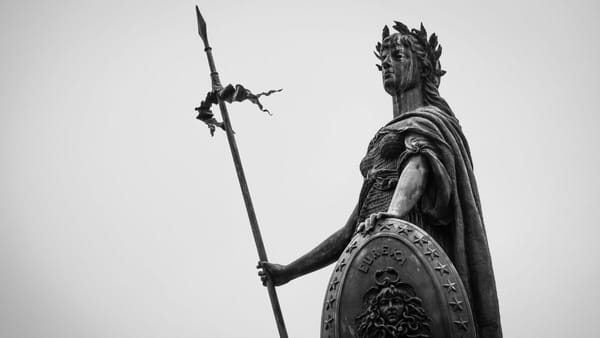Sometimes a book doesn’t need to be long to leave you stunned. Classic novellas prove that literature can be brief yet unforgettable, delivering the same emotional and intellectual weight as epics in just a fraction of the pages. They’re the kind of works you can read in a single weekend but think about for years afterward. From haunting tales of alienation to stories of courage, absurdity, and quiet rebellion, these short masterpieces remain among the best classic novellas to explore. If you’ve ever wanted to dive into literature without committing to 700 pages, these are the short classic books you should start with.
Why Classic Novellas Still Matter
A novella is like a literary espresso—short, strong, and enough to keep you thinking long after you finish. Unlike sprawling novels that sometimes meander, novellas compress philosophy, love, tragedy, or absurdity into under 200 pages. Their brevity isn’t a weakness but a strength, forcing writers to cut away everything unnecessary. That’s why the best classic novellas often feel sharper and more impactful than many longer works. They’ve endured not because they’re quick reads, but because they distill timeless truths into concentrated form. These aren’t just short classics to tick off your list—they’re stories that can change the way you see the world.
The Metamorphosis by Franz Kafka
Kafka’s surreal tale of Gregor Samsa, who wakes up one morning as a giant insect, remains one of the strangest yet most powerful novellas ever written. On the surface, it’s a bizarre story, but beneath it lies a chilling reflection on alienation, work, and family. Kafka manages in just over 100 pages what some novels can’t do in 600: capture the absurdity of existence. If you’ve dipped into absurdist classics, you’ll know how influential this story is. It’s unsettling, memorable, and the perfect example of how a short classic book can leave a huge mark.
Heart of Darkness by Joseph Conrad
This is one of the best-known classic novellas, and for good reason. Following Marlow’s journey up the Congo River in search of the enigmatic Kurtz, Conrad unpacks the darkness not just in colonialism but in human nature itself. It’s unsettling, sometimes dense, but unforgettable. The imagery and atmosphere seep into your mind, leaving questions long after you’ve closed the book. Readers of classic war novels often turn to this story to see how early literature explored the brutality and moral fog of imperialism. For many, this novella remains as relevant today as it was at the turn of the 20th century.
The Death of Ivan Ilyich by Leo Tolstoy
Tolstoy didn’t need thousands of pages to confront life’s biggest question: what does it mean to die well? This novella follows Ivan, a high-ranking official who discovers his comfortable life may not have been meaningful after all. As he faces death, he also faces the terrifying possibility that he lived wrongly. It’s one of the most profound short classic books ever written, not because it offers easy answers, but because it holds up a mirror we can’t look away from. It’s philosophy disguised as fiction—compressed, emotional, and unforgettable.
Billy Budd, Sailor by Herman Melville
Melville is often remembered for Moby-Dick, but Billy Budd shows his mastery of the novella form. In fewer than 200 pages, he gives us a tale of innocence, justice, and tragic downfall aboard a warship. The story explores questions of law, morality, and authority—big themes packed into a small space. The beauty of this book lies in its simplicity and its weight: it feels like both a sea adventure and a timeless moral parable. It’s one of the short classics that proves length doesn’t equal depth.
The Stranger by Albert Camus
Camus’s novella is perhaps the most famous of all existential classics. It follows Meursault, a man who kills with little apparent reason and then drifts through his trial with shocking indifference. What makes the story so powerful is not the crime itself but the way it exposes life’s absurdity and our need to create meaning. In under 150 pages, Camus forces readers to confront freedom, death, and the uncomfortable truth that life often refuses to make sense. It’s short, sharp, and still capable of sparking heated debates today.
The Turn of the Screw by Henry James
Few novellas capture atmosphere like this one. A governess tasked with caring for two children begins to suspect something sinister haunting the estate—but is it real, or is it all in her mind? James leaves us guessing, and that ambiguity is what makes this one of the most chilling gothic classics ever written. In just a slim volume, he creates tension, paranoia, and dread that rivals novels three times as long. It’s a masterclass in how the novella form can deliver psychological depth and horror without excess.
Of Mice and Men by John Steinbeck
This slim story about George and Lennie—two migrant workers with big dreams during the Great Depression—is one of the most heartbreaking short classic books you’ll ever read. Steinbeck gives us characters so vivid they feel like people you’ve known all your life, only to break your heart with their fate. It’s about friendship, loneliness, and the fragile line between hope and despair. Proof that a novella can hit harder than a novel, it’s the kind of story that lingers long after you’ve read it.
Notes from Underground by Fyodor Dostoevsky
Dostoevsky’s Notes from Underground is often seen as a precursor to modern existential thought. The bitter, isolated Underground Man is one of literature’s most unforgettable narrators—self-destructive, sharp, and brutally honest. The novella isn’t about plot so much as a deep psychological dive, one that forces us to question free will, suffering, and self-awareness. It’s short, but its influence is massive, making it one of the best classic novellas for readers interested in exploring the roots of modern philosophy in fiction.
The Old Man and the Sea by Ernest Hemingway
Hemingway’s Pulitzer Prize–winning novella might seem simple: an aging fisherman struggles to catch a giant marlin. But it’s more than a fishing story—it’s about resilience, dignity, and the nobility of effort, even in defeat. Hemingway’s spare style makes the story feel lean and sharp, perfectly suited to the form. This is one of those timeless novellas that feels universal—something anyone, anywhere, can read and find meaning in.
The Awakening by Kate Chopin
Chopin’s The Awakening was groundbreaking in its day and remains powerful now. It tells the story of Edna Pontellier, a woman pushing against the boundaries of marriage and society in the 19th century. In under 200 pages, Chopin delivers a feminist classic that shocked its first readers and continues to spark discussion. The novella’s beauty lies in its combination of lush writing and bold subject matter, proving that short classic books can be just as revolutionary as long ones.
Final Thoughts: Why Short Classics Endure
What makes these novellas stand the test of time isn’t their length—it’s their intensity. They strip away excess and leave only what matters most: the questions, struggles, and truths that define human life. Whether it’s Kafka’s surreal alienation in The Metamorphosis, Conrad’s confrontation with empire in Heart of Darkness, or Steinbeck’s tender tragedy in Of Mice and Men, these short works carry more power than many longer books. They show that brevity can be a strength, not a limitation. For readers looking to experience the best classic novellas, this list proves that small books can carry enormous voices—and those voices echo long after the final page.
Thanks for reading. If this list helped you discover something new — or rediscover something old — you’re welcome to keep exploring:

















